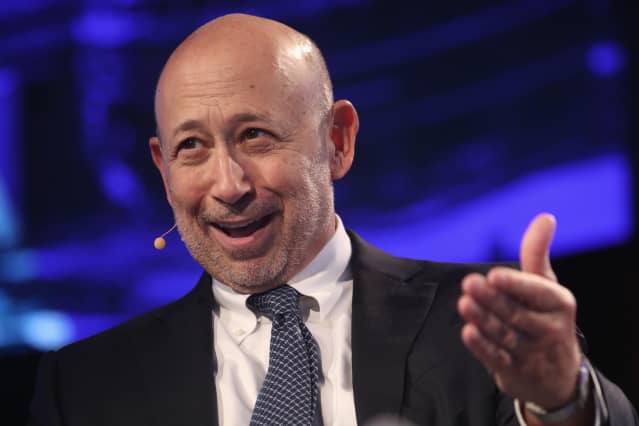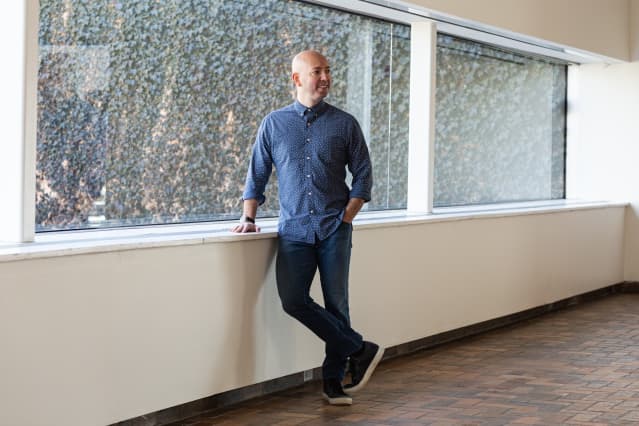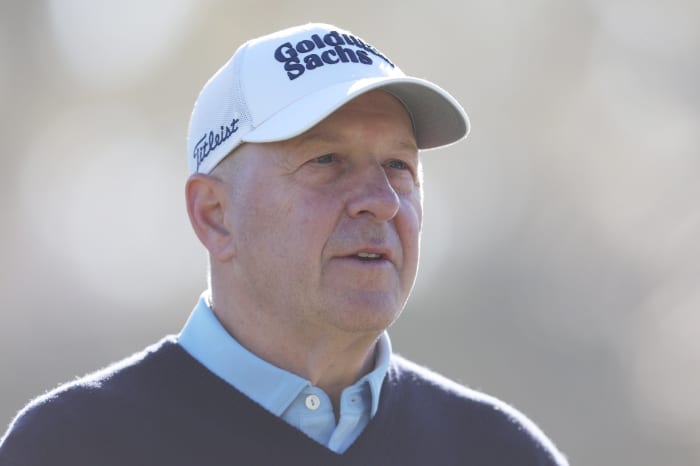This post was originally published on this site
Ten years ago, Greg Smith ended his Wall Street career with a public bridge burning that reverberated across America. In the pages of The New York Times, Smith quit his job at Goldman Sachs
GS,
the nation’s most powerful investment bank, with a searing op-ed that detailed his disillusionment with high finance, claiming the bank no longer put clients’ interests first.
“It makes me ill how callously people talk about ripping their clients off,” Smith wrote on March 14, 2012. “Over the last 12 months I have seen five different managing directors refer to their own clients as ‘muppets,’ sometimes over internal e-mail.”
“Why I am Leaving Goldman Sachs” struck a nerve at a time when the country was still sifting through the rubble of the financial crisis, looking for villains to blame and justice to be served. Occupy Wall Street protesters had been camped out in New York’s financial district for six months when Smith published his op-ed and the Tea Party movement, which got its start on CNBC, had become a political force in Washington. A month before Smith’s public exit, federal prosecutors charged a former Credit Suisse
CS,
executive with falsifying bond prices linked to mortgage-backed securities. He became the only banker to serve jail time in the U.S. over the crisis.
Some hailed Smith, who worked at Goldman for more than a decade, for sticking it to the biggest Wall Street investment bank. Others branded him a traitor, a naive attention-seeking whiner. The controversy over his resignation became a media circus. Millions read Smith’s op-ed, which was followed by a “60 Minutes” interview and a $1.5 million book deal with Hachette’s Grand Central imprint.
A decade later, Smith stands by his criticisms of Wall Street. “I’ve never regretted the op-ed and I’m very proud of it,” he told MarketWatch in an interview.
If this were a movie, Smith might have left banking behind to go raise goats in the mountains. Instead, he’s doubled down on finance, and in a way, he’s still trying to take on the big institutions that he railed against in 2012.
Smith’s current project is Moneyworld, a fintech startup he founded. The app, which he describes as a cross between the online game Animal Crossing and the mobile banking app Chime, will be designed to help people start and stick with building cash savings. The vibe will be encouraging, welcoming, and hopefully the opposite of the “you’re behind on your financial goals” feeling that big banks can give customers, he said. Its tag line is: “Banks don’t help you save, Moneyworld does.”
Smith says he feels lucky about the path he’s taken since Goldman. “When you’re working on Wall Street, there’s no deeper problem that you’re trying to solve,” Smith said. “In some ways, the op-ed and book put me on a journey toward a problem that’s been very rewarding to work on.”
Talking to him today, Smith is measured and thoughtful, taking time to make sure he understands questions before he answers in his South African accent. Now 43, he comes off as the earnest true believer he was when he joined Goldman fresh out of college, which is perhaps a quality that some perceived as naivete in his 2012 op-ed. “I love finance and I got into it because it’s a really interesting space,” he said. “It has the potential to do great good in the world if deployed in the right ways.”

The headquarters of Goldman Sachs in lower Manhattan was rocked when Greg Smith’s op-ed ran in The New York Times 10 years ago.
Spencer Platt/Getty Images
Like many white-collar workers, Smith realized he could work from anywhere during the pandemic, so he moved to the Chicago area temporarily to be near his immediate and extended family. He lives in the leafy suburb of Highland Park, but still considers New York City his home and plans to return later this year.
Single, but looking for the right Jewish woman to settle down with, Smith has made building Moneyworld his main focus for the past 18 months, often working from around 8:30 a.m. to 8 p.m. In off hours, he immerses himself in news and politics, and like many viewers, prestige TV. He’s a big fan of the HBO show “My Brilliant Friend” and Netflix’s “Money Heist,” and finally finished “Friday Night Lights” during the pandemic. (As for business-themed fiction, he said he couldn’t watch HBO’s “Succession” because it was too cynical and unhappy, but found the movie “Margin Call” an eerily accurate depiction of life on a trading floor.)
In 2019, Smith became a U.S. citizen, a proud, happy milestone for him after living in the U.S. since 1997. Smith grew up in South Africa and went to Stanford University on a full scholarship. After cold-calling his way into a summer internship at Paine Webber his sophomore year, he next set his sights on Goldman because it was “the best, most prestigious firm in the world,” he wrote in his book.
After a summer internship in the bank’s equities division, Smith was hired full-time as an analyst in new markets sales. Ten years later, he was an executive director of U.S. derivative sales for Europe, Middle East and Africa, working in the London office in a middle-level position.

Lloyd Blankfein was CEO of Goldman Sachs a decade ago.
John Moore/Getty Images
Smith’s book traces his gradual disenchantment with Goldman’s practices — which in his view shifted from being integrity-driven and client-focused to strategies that prioritized Goldman’s interests, such as selling exotic investment products to pension fund managers who didn’t fully understand what they were buying. There’s an argument to be made that it was Smith’s perception, not the firm’s priorities, that changed during that time, but Smith still believes firmly that it was the latter.
In response to Smith’s claims, Goldman conducted an internal investigation, and told its employees in a publicly released memo, “Mr. Smith’s op-ed portrayed a firm that is unrecognizable to us and directly opposite to the culture we work hard to foster, but we took his claims seriously and conducted a thorough review of them. That review found no evidence to support his claims, but did find that Mr. Smith appeared to be frustrated about his career and future prospects at Goldman Sachs.” Goldman Sachs did not respond to a request for comment for this story.
What does one do after sparking a brief but fiery national debate about Wall Street’s allegedly underhanded (yet legal — Smith made no claims of illegal activity at Goldman) behavior? Smith says he set out to find a way he could use the knowledge he had of the system to improve it. He zeroed in on public pensions, because they’re “vital to society and under-resourced,” he said.
He started thinking about how to help Americans achieve retirement security and considered trying to start a business around that idea. At a meeting with venture capitalists, someone mentioned Blooom, a fintech startup that was going to help users evaluate their retirement savings in part by showing them images of flowers representing their accounts’ health (a wilting flower could mean assets are out of balance, for example).
Smith contacted the CEO and other co-founders, and liked their vision for a fiduciary-minded fintech that would cut through the “bewildering” jargon of finance with accessible imagery. Smith joined the company as president, working on fundraising and developing business-to-business partnerships at Blooom, which is based in Kansas. When the company restructured to focus more on its direct-to-consumer business, Smith left. He says he’s still on good terms with the company, which reportedly has more than $5 billion in assets under management, and is still a shareholder.
““I’ve never regretted the op-ed and I’m very proud of it.” ”
Next, a venture capitalist who heard Smith speak at a public debate about entrepreneurship suggested Smith check out Wealthsimple, a Canadian fintech, because its mission seemed aligned with Smith’s emphasis on helping the little guy access financial services. Aimed at millennials, Wealthsimple has no minimum account balance and offers access to human financial advisors and socially responsible investments. Smith joined the company in 2017 as head of business development and partnerships.
In early 2020, as the pandemic was taking hold, Smith started thinking again about an issue he had long been interested in: how to improve Americans’ dismal cash savings. About 35% of U.S. households say they don’t have enough cash on hand to cover an unexpected $400 expense such as a medical bill or car repair, according to the Federal Reserve.
“In my own journey, a goal of mine is to align who I am with what I do for work,” Smith said. “I’ve long been very interested in the problem of how do you help people who have no savings build savings. I think the pandemic has forced us all to zone in on doing what we think is most important with our time and energy.”

Greg Smith wants to help people build cash savings with an app called Moneyworld.
MarketWatch/Loren Toney
Smith approached Wealthsimple’s founders about striking out on his own, and he started Moneyworld in May 2020. The company’s investors include several Wealthsimple employees, as well prominent fintech investors such as Walkabout Ventures and Portage Ventures, and F-Prime Capital, the venture firm backed by members of Fidelity Investment parent company FMR LLC.
A combination video game and digital bank account, Moneyworld will be aimed at people who are new to saving. Smith says fintechs in general tend to drift toward more sophisticated investors, serving millennials who are wealthy or on a path to becoming wealthy. He saw an untapped market for accessible financial services for people of modest means, living paycheck-to-paycheck. “We’re creating a much more delightful and fun and accessible way to begin your saving journey,” Smith said.
Moneyworld users will open an FDIC-insured bank account, then build their savings by playing a game on the app. Friendly animated characters and rewards will help users stick to their savings goals. The app will be fiduciary-minded, a phrase that comes up a lot when you talk to Smith, meaning that it will make decisions based on what’s best for clients’ financial interests, he said. The company has raised $2 million in funding and has eight employees, all remote, including one digital nomad who is currently living in Thailand.
Smith says he’s optimistic about fintech and its potential to serve customers. As he sees it, the first iteration of fintech companies encouraged speculative behavior, such as helping people buy products they couldn’t afford through buy-now-pay-later apps, or turning day trading into a game for rookie investors, often while keeping the true cost of the product hidden from users.
He sees the next round of fintech as poised to help Americans strengthen some of their financial weak spots. He says he wants Moneyworld, which will use humorous, nostalgic visuals, to take a transparent approach. It will charge users a flat membership fee. Moneyworld will need to stand out in a crowded field to survive. Funding for U.S. fintechs hit an all-time high in 2021 of $6.3 billion across 1,827 deals, and the number of “unicorn” startups with $1 billion valuations hit 235, more than doubling since 2020, according to CB Insights.
“I still feel we’re pretty early in technology’s promise to really help people build savings,” Smith said. “I intend to devote my career to helping people.”

David Solomon became CEO of Goldman Sachs in 2018. The investment bank’s market capitalization is only 12% higher today than its 2007 peak.
Jed Jacobsohn/Getty Images
Smith has moved on, but he still remembers some of his biggest critics from a decade ago. He can recall how in the wake of his op-ed, Michael Bloomberg, New York’s mayor at the time, called his claims “ridiculous” and defended Goldman, saying, “They’re a company that’s here to make money. That’s what they do.”
Smith says he still finds criticisms such as Bloomberg’s that imply that Smith and others who question Wall Street are uninformed, “very offensive to the general public,” he said.
“Someone saying, ‘Oh they’re banks, they’re supposed to make money,’ assumes that regular people don’t want their bank to treat them fairly and offer them honest transparent products,” Smith said. When we go to the doctor or the car mechanic, we expect honest treatment, “yet in the banking system, there’s this attitude that there should be this buyer beware mentality.” He believes the general public wants a system that is more fair.
Smith closed his book by saying that he hoped his op-ed would make a difference, however small, in reforming the system. Today, he feels he did play a role in changing Wall Street. After the book was published, Smith had the ear of regulators, and he was among thousands of people who gave input to the Securities & Exchange Commission and federal lawmakers on the Dodd-Frank law, in particular the Volcker Rule. The regulatory change was championed by former Federal Reserve Chair Paul Volcker and prohibited banks from making the types of proprietary trades Smith described in his book. The rule was implemented in 2014 and partly loosened in 2020; the Biden administration seems poised to try to strengthen it.
Smith worries that the turmoil of the past decade has distracted Americans from the need for better oversight of the institutions that handle people’s money. Today, he’s disconnected from Wall Street’s day-to-day behaviors, but from a distance he still sees that the fundamental incentives haven’t changed much, derivative products are still extremely complicated, “too big to fail” still exists. “I don’t see any large changes in the system, and in fact the system seems even more concentrated,” Smith said.
But he says he feels no ill will toward Goldman, where some of his friends still work. He’s glad for the education he got working there, with “some of the smartest people in the world.” He thinks the bank’s new consumer-facing banking product, Marcus, “seems excellent.” “Goldman is an important part of the banking system. When Goldman does things that are transparent and good for the banking system, I would cheer them on,” he said.
Goldman, for its part, is not the fearsome behemoth it once was, the “vampire squid” of 2009. The bank is doing just fine, but it’s no longer the most valuable firm on Wall Street. Its market capitalization trails the valuation of Blackstone Group,
BX,
a private equity firm, and is on par with BlackRock
BLK,
a firm with a flagship product that charges clients a fraction of a penny per dollar.
As the 10th anniversary of the op-ed approached, Smith said he was aware that it was coming up, but wasn’t spending a lot of time ruminating about it, until MarketWatch asked him to reflect on the moment.
“I think Wall Street can be a bubble where people don’t look outside the bubble very often and they get on a hamster wheel of comparing their salaries and bonuses,” Smith said. “It’s not the reality that most of the world lives in. What I’m happy about is that I’ve gotten closer to melding what I do for a job with what I believe.”


